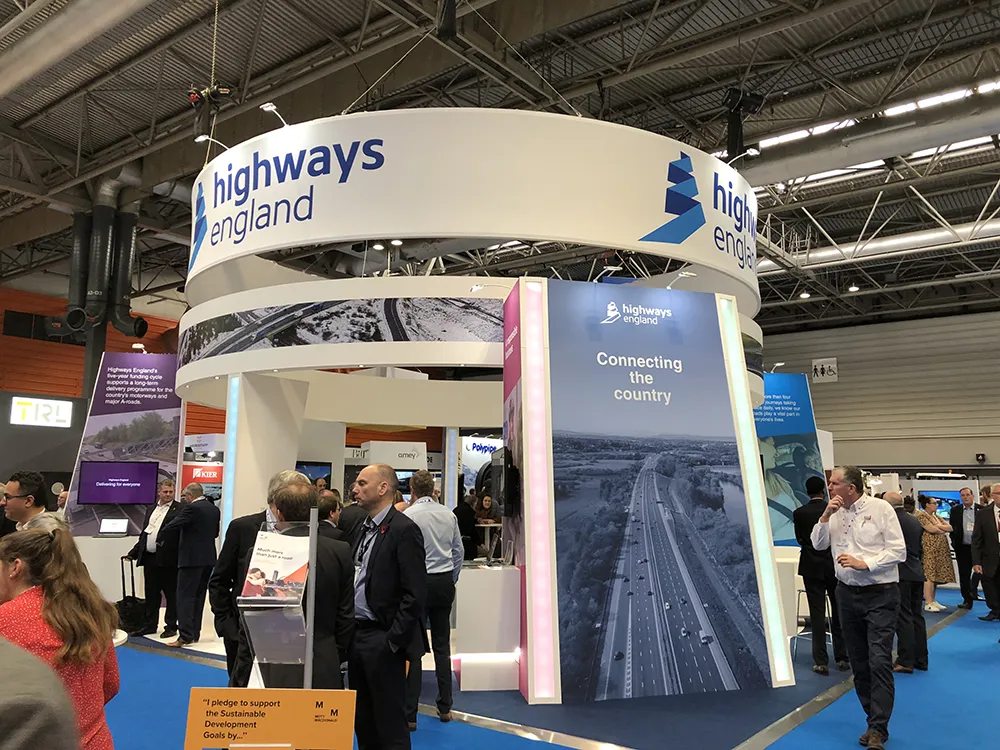The planning of strategic highways in England is locked into a two-tier mentality that is not good for the economy or for society. It is time to change.
That is the message that David Quarmby, former chair of the RAC Foundation and head of RJRF’s Major Roads for the Future study, will be bringing to Highways UK, the landmark new roads conference at ExCel, London, 25th-26th November.
In his keynote address Quarmby will argue that while welcome new funds, a new planning regime and a new arm’s length ro
November 13, 2015
Read time: 3 mins
The planning of strategic highways in England is locked into a two-tier mentality that is not good for the economy or for society. It is time to change.
That is the message that David Quarmby, former chair of the5521 RAC Foundation and head of RJRF’s Major Roads for the Future study, will be bringing to 8269 Highways UK, the landmark new roads conference at ExCel, London, 25th-26th November.
In his keynote address Quarmby will argue that while welcome new funds, a new planning regime and a new arm’s length role are in place for8100 Highways England, local transport planning is stuck in an age of austerity despite being of enormous economic significance for the whole of the UK. The huge changes currently happening in governance, funding, and strategy at Highways England make this a once-in-a-generation opportunity to close the gap between the haves and the have-nots, to create a truly connected, flexible, responsive, road network, fir for purpose to support England’s economy – north and south.
Quarmby believes that the solution to the ‘transport gap’ is apparent. “We need to start thinking about planning in a wholly new way, to think in terms of a Major Road Network that combines Highways England’s Strategic Road Network and the major ‘strategic’ roads controlled by councils,” he said. “That is the only way we can deliver a road system that is responsive to the economic needs of the country at every level.”
Mapping out such a major Road Network could be politically challenging, but Quarmby and his team believe that evidence and analysis can set the terms. “The data we have now on road users is rich,” he said. “We can analyse the economic significance of a particular road, relate it to the regional growth agenda for that area, and argue for it to be included in England’s Major Road Network.”
Using these methods the study team led by Quarmby for the Rees Jeffreys Road Fund has outlined a Major Road Network that is 90% larger than the current Strategic Road Network.
What the Major Road Network idea does not imply is any change in responsibilities. Quarmby will argue that the current division of responsibilities could remain in place, making a transition to the new approach much simpler. But funding would have to reflect the economic significance of the more than 6,400km of additional local roads, perhaps drawing on funds within the new Road Fund due to come into place in 2020, currently assumed to be designated only for Highways England. Planning will have to be cooperative across sectors.
Looking forward, the Major Road Network needs to be fit for purpose. Quarmby’s study is working through the implications for future levels of demand for private and commercial transport; the effects of profound technological change that within the next two decades will revolutionise the capability of road vehicles, the role of the driver, and their interactions with the highway; how road safety can and will be improved; and the implications of technology change for air quality. Changes in governance of transport through devolution will transform decision-making and planning.
The Highways UK conference which brings together senior figures from every corner of the highways world and central and local government, is the place to start comprehending these immense changes.
That is the message that David Quarmby, former chair of the
In his keynote address Quarmby will argue that while welcome new funds, a new planning regime and a new arm’s length role are in place for
Quarmby believes that the solution to the ‘transport gap’ is apparent. “We need to start thinking about planning in a wholly new way, to think in terms of a Major Road Network that combines Highways England’s Strategic Road Network and the major ‘strategic’ roads controlled by councils,” he said. “That is the only way we can deliver a road system that is responsive to the economic needs of the country at every level.”
Mapping out such a major Road Network could be politically challenging, but Quarmby and his team believe that evidence and analysis can set the terms. “The data we have now on road users is rich,” he said. “We can analyse the economic significance of a particular road, relate it to the regional growth agenda for that area, and argue for it to be included in England’s Major Road Network.”
Using these methods the study team led by Quarmby for the Rees Jeffreys Road Fund has outlined a Major Road Network that is 90% larger than the current Strategic Road Network.
What the Major Road Network idea does not imply is any change in responsibilities. Quarmby will argue that the current division of responsibilities could remain in place, making a transition to the new approach much simpler. But funding would have to reflect the economic significance of the more than 6,400km of additional local roads, perhaps drawing on funds within the new Road Fund due to come into place in 2020, currently assumed to be designated only for Highways England. Planning will have to be cooperative across sectors.
Looking forward, the Major Road Network needs to be fit for purpose. Quarmby’s study is working through the implications for future levels of demand for private and commercial transport; the effects of profound technological change that within the next two decades will revolutionise the capability of road vehicles, the role of the driver, and their interactions with the highway; how road safety can and will be improved; and the implications of technology change for air quality. Changes in governance of transport through devolution will transform decision-making and planning.
The Highways UK conference which brings together senior figures from every corner of the highways world and central and local government, is the place to start comprehending these immense changes.








